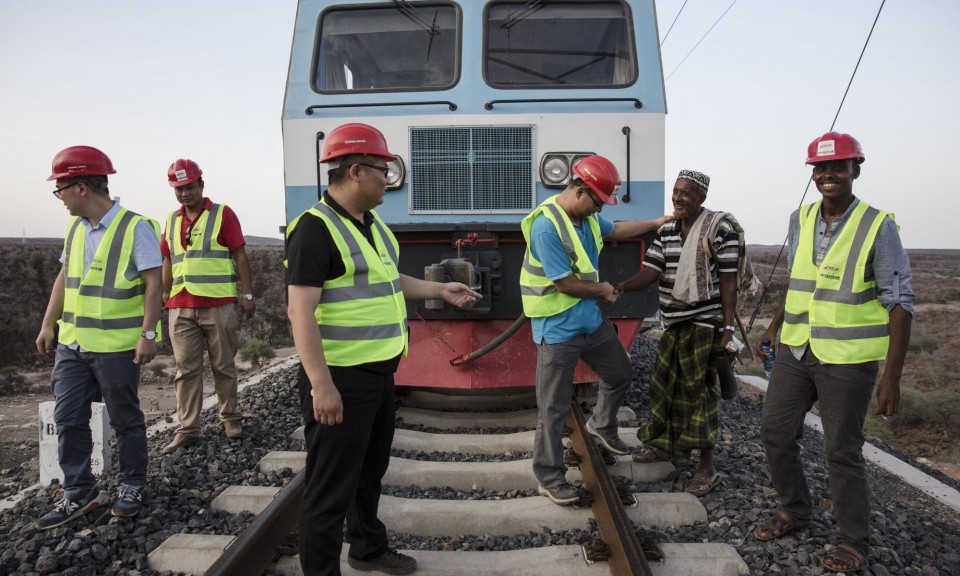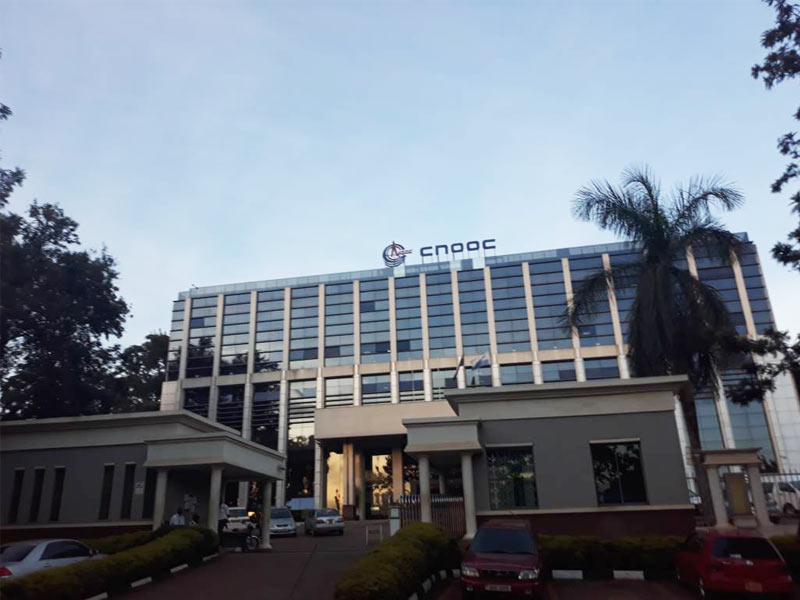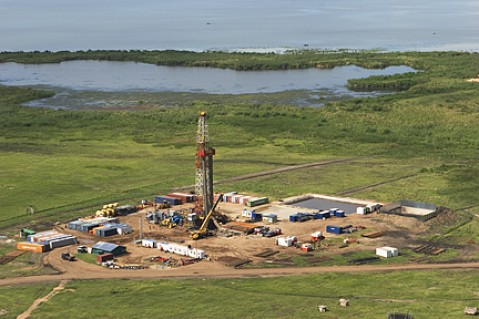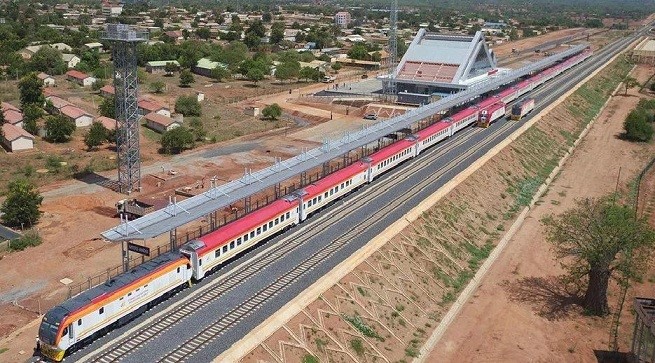By Timothy Sibasi-Reporter without borders, based in Kampala, Uganda
Ahead of the upcoming Forum on China-Africa Cooperation (FOCAC) scheduled to take place on Sept. 3-4 in Beijing, we can take a closer look at China's US$ 38 billion energy investments in Africa from Ethiopia to Kenya, Madagascar, Mauritius, Mozambique, Tanzania and Uganda, which have played a key part to boost the African economy.

Fifty three African head of states are expected to attend the summit as they will meet with Chinese President Xi Jinping and pledge closer China-Africa ties that will focus on industrial development, infrastructure, trade and investment, human resource development, science education, culture and health, environmental protections, as well as peace and security.
East Africa comprises of some of Africa's most floating economies. Ernst and Young, one of Africa’s leading auditing consultancy firms, predicted in its 2017 report, Connectivity Redefined, that Kenya, Tanzania, Uganda and Ethiopia are forecast to grow at an annual rate of more than 6% for the next 10 years, largely on account of continuous growth of foreign direct investment (FDI).
Uganda. Chinese investment in Africa remains focused on mining, resources and infrastructure. In the past 18 years, China has invested US$34.8 billion in African energy projects. Uganda has received US$2.1 billion.
China National Offshore Oil Corporation (CNOOC) is one of the major players in Uganda's oil and gas sector and prepares to produce its first oil by 2020.

Headquarters for Chinese Oil company, CNOOC Limited, with oil stakes in Uganda and listed on the Toronto Stock Exchange. (Photo/Timothy Sibasi)
The president of the Institute of Certified Public Accountants of Uganda, DR. Protazio Begumisiriza said East Africa will be the first to benefit from the Belt and Road Initiative in Africa. "Countries such as Djibouti, Egypt, Kenya and Tanzania stand to gain huge flows of investment in infrastructure and energy."

One of the oil wells owned by CNOOC in Uganda’s oild district of Hoima. (Photo/Timothy Sibasi)
Ethiopia, which is described as one of China's "robust partners" and reportedly Ethiopia has received US$10.7 billion in loans from China from 2010 to 2015.
"China’s Belt and Road Initiative is welcomed by Ethiopia," says Kidist Abayneh, a partner at Kidist and Associates Law Office in Addis Ababa. "It's known that the new initiative will also link China's southern coast with East Africa. Though it seems that the implementation of this initiative is not progressing in Ethiopia, the increasing number of Chinese investors in the country and their huge levels of investment in the construction and manufacturing industries shows the acceptance of it by the Ethiopian government, which continues to encourage Chinese investors to invest in the country."
Now, moving on to Kenya, one of the largest and fastest growing economies in the region, making it an attractive hub for FDI in agriculture, manufacturing and mining.

Section of Kenya's Chinese built Standard Gauge Railway, which has been hailed as the country's biggest infrastructural project since independence. (Photo/Timothy Sibasi)
John Miles, managing director of JMiles & Co in Nairobi, considers construction to be the most popular industry for Chinese investment in Kenya. Chinese businesses have invested heavily in construction, the upgrading of the country’s transportation network, property development and industrial parks. Miles added that investment opportunities in trade, agriculture and energy are also gaining popularity.
And in Tanzania, Chinese direct investment tends to target the processing and manufacturing industries, however, there is a growing trend towards large-scale Chinese investment in construction and mining.
Some "minor operational challenges” foreign investors may encounter in Tanzania concern land ownership, which is restricted to Tanzanian citizens. Labor laws also put restrictions on the number of foreign employees a foreign investor can hire in country.
Mauritius. In a bid to become the gateway to Chinese investment for Africa, China and Mauritius signed a memorandum of understanding (MOU) in December 2017, to open negotiations on a bilateral free-trade agreement (FTA).
According to Martine de Fleuriot de la Colinière, director, and Xavier Koenig, executive at ENSafrica in Mauritian capital Port Louis, the deal marks the official initiation of China-Mauritius negotiations on FTA, which will be the first such agreement between China and African countries.
"The MOU also calls for the establishment of a Free Trade Zone (FTZ) between the two countries," the two lawyers said. "China is the second-largest trade partner and the largest import origin of Mauritius. In November 2016, both countries started a joint feasibility research on FTA negotiations, which was the first such process between China and African countries."
The FTA negotiations are in the interests of both China and Mauritius, and should facilitate and further deepen the economic and trade ties between the two countries. The establishment of Sino-Mauritius FTZ will not only be favourable to boosting bilateral trade and investment between the two counties, but it will also infuse a new momentum to the transformation of relations between China and African countries.
Mauritius being often used as a hub and platform for investment into Africa due to favourable access to treaties and investment protection agreements. Mauritius provides Chinese enterprises with unique investment opportunities in aquaculture, agro-industry, ocean economic, renewable energy, seafood and marine tourism. Infrastructure projects are also of great importance for the country, namely road construction, airport, port and resorts.
Last but not least, Madagascar. The island nation positions itself as the Tiger of the Indian Ocean, rich in natural resources, with mining becoming a pillar of foreign investment, particularly among Chinese investors.
Aviva Ramanitra, managing partner at LEXEL Juridique & Fiscal in the capital, Antananarivo, said one of the greatest challenges faced by foreign investors in mining is obtaining the licenses and permits required to operate and commence their activities, because the Malagasy government has put a halt to grant mining permits to new companies.
(The opinions expressed here do not necessarily reflect the opinions of Panview or CCTV.com. )

Panview offers a new window of understanding the world as well as China through the views, opinions, and analysis of experts. We also welcome outside submissions, so feel free to send in your own editorials to "globalopinion@vip.cntv.cn" for consideration.
















